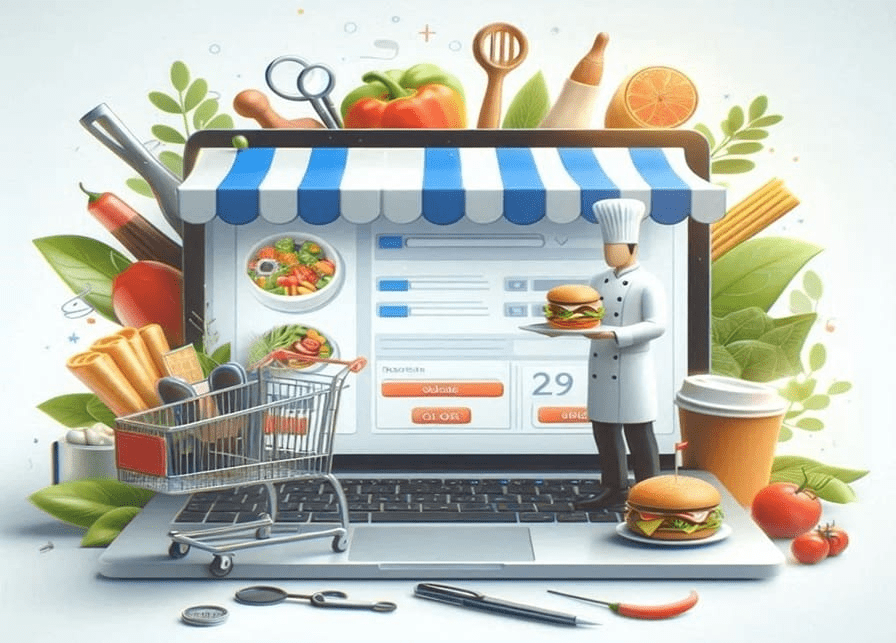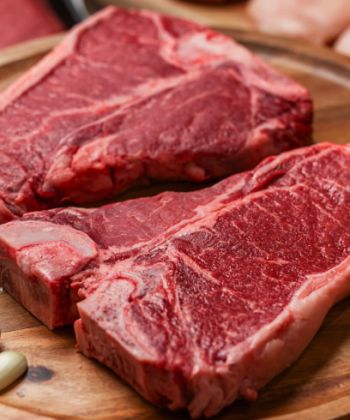
Online marketing is essential for any restaurant’s success. Using social media, search, and email marketing helps restaurants expand their reach, enhance customer engagement, and boost sales. Targeted campaigns allow restaurants to connect with customers on a personal level, fostering loyalty and encouraging repeat business. But how can online marketing change the game for restaurants?
This post will explore how online marketing can significantly impact a restaurant’s success and why it’s crucial to embrace this modern approach.
What is Restaurant Online Marketing?
Restaurant online marketing is the practice of promoting a restaurant and its services through various digital channels, such as social media, search engines, and email using various restaurant marketing tools. This type of marketing allows restaurants to reach a wider audience and engage with potential customers in a more direct and personalized way. As a part of food marketing, online marketing can include various strategies and techniques to attract customers and drive sales.
Let’s take a closer look at the different ways that online marketing can benefit restaurants.
Ways That Online Marketing Can Benefit Restaurants
Expanding Reach and Visibility
One of the biggest advantages of online marketing is its ability to expand a restaurant’s reach. Traditional advertising methods like print ads or billboards limit restaurants to their immediate area.
Online marketing allows restaurants to reach potential customers far beyond their local area. Social media platforms like Facebook, Instagram, and Twitter have millions of active users, allowing restaurants to target specific demographics and locations.
SEO techniques can help restaurants appear higher on search engine results pages (SERPs), making it easier for customers to find them when searching for nearby dining options. By expanding reach and visibility, online marketing can attract new customers and boost business.
Trend Analysis and Menu Planning
AI platforms like Tastewise use real-time data from social media, reviews, and menus to analyze food and beverage trends. Restaurants can use this valuable information to plan new menu items and promotions and even make adjustments to their existing menus.
For example, if a restaurant notices that plant-based options are trending in their area, they can incorporate more vegetarian or vegan dishes into their menu to cater to the demand. This not only helps attract new customers but also enhances customer satisfaction by offering trendy and relevant options.
Personalized and Targeted Marketing
Another major benefit of restaurant online marketing is its ability to personalize and target messages to potential customers. Traditional advertising often relies on generic messages that may not resonate with the target audience.
With social media and email marketing, restaurants can tailor messages based on customer demographics, interests, and behaviors. This personalized approach helps create a stronger connection with potential customers and increases the chances of converting them into paying patrons.
Additionally, targeted marketing allows restaurants to reach specific audiences who are most likely interested in their services. For instance, using Facebook Ads or Google AdWords, restaurants can target users based on location, interests, and search history. This precision targeting helps save on advertising costs while boosting campaign effectiveness.
Customer Engagement and Loyalty
Online marketing also provides restaurants with an opportunity to engage with their customers on a more personal level. Through social media, restaurants can respond to customer comments, feedback, and reviews in real time. This helps build a relationship with customers and shows that the restaurant values their opinions.
Moreover, restaurants can also use social media to reward and retain loyal customers. By offering exclusive promotions and discounts to followers on social media platforms, restaurants can encourage repeat business and foster customer loyalty. This personalized approach helps create a strong connection with customers and makes them feel valued by the restaurant.
Improved Customer Service
In the age of technology, customers expect quick and convenient service from restaurants. Online marketing tools, such as online ordering platforms, mobile apps, and chatbots, can help streamline the customer service process. These tools allow customers to easily place orders, make reservations, and get their questions answered without having to pick up the phone or wait in line. This not only improves customer satisfaction but also helps reduce the workload for restaurant staff.
Additionally, restaurants can use data collected through these platforms to improve their services. By analyzing customer feedback and behavior patterns, restaurants can identify areas for improvement and make necessary changes to enhance the overall dining experience.
How Can Online Marketing for Restaurants Change Industry?
According to a survey by MGH, 91% of people have searched for nearby restaurants online and 75% have looked at a menu before dining out. This highlights the importance of having an online presence for restaurants in today’s digital age. Online marketing not only allows restaurants to reach a wider audience, but it also has the potential to change the industry in several ways.
Increased Competition
With the rise of online ordering platforms and food delivery services, smaller local restaurants now have to compete with larger chains that have more resources for online marketing. This means that restaurants need to be creative and strategic in their marketing efforts to stand out and attract customers.
Need for Constant Innovation
In order to stay relevant and keep up with changing consumer trends, restaurants must constantly innovate and adapt their online marketing strategies. This can include using social media platforms to showcase new menu items, collaborating with influencers for promotions, or utilizing augmented reality technology for a unique dining experience.
Improved Customer Experience
Online marketing also plays a crucial role in enhancing the overall customer experience. Through online reviews, feedback surveys, and social media interactions, restaurants can gather valuable insights into what customers like and dislike about their services. This information can then be used to make necessary improvements and provide a better dining experience for customers.
Shift in Advertising Budgets
Traditional forms of advertising, such as print ads and television commercials, are becoming less effective and more expensive compared to online marketing methods. As a result, restaurants are shifting their advertising budgets towards digital channels. This allows for better targeting and tracking of campaigns, resulting in a higher return on investment.
Conclusion
Restaurant online marketing has become an essential aspect of running a successful business in today’s digital age. With the experience of COVID-19, it has become even more crucial for restaurants to have a strong online presence and utilize various digital marketing strategies to attract and retain customers.
Restaurants must continue to adapt and innovate in their online marketing efforts to stay competitive and provide an exceptional customer experience. By utilizing the latest technologies and staying up-to-date with digital trends, restaurants can effectively reach and engage with their target audience, ultimately leading to increased brand awareness, customer loyalty, and business growth.


